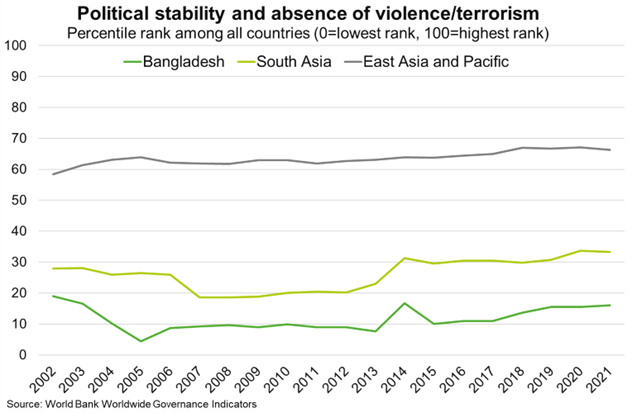Bangladesh—Political tensions high as election approaches
Political tensions are high ahead of the general election due by January 2024. Division between the ruling Awami League (AL) and opposition Bangladesh Nationalist Party (BNP) over running of the election has been accompanied by protests, arrests, and violence, including deaths. Previous elections have also been accompanied by violence.
The BNP is calling for Prime Minister Hasina to step down, arguing that a free and fair election is only possible under a neutral government. The AL has consistently said the election will be held under the existing arrangements in which the elected government retains office while the election is being held. Bangladesh has consistently ranked below the 20th percentile and below regional peers in the World Bank’s measure of political stability and absence of violence (Chart). Public discontent is exacerbated by economic hardship, including high inflation.
Bangladesh is a small but growing market for Australian exports. Exports rose $723 million over the year in 2022 to reach $2.5 billion, making Bangladesh our 27th largest export market. Despite near-term economic headwinds and political volatility, authorities’ efforts to enhance the business environment through IMF-led reforms, including increasing spending on physical and social infrastructure, offers opportunities for Australian energy, telecommunications and infrastructure-related exports ahead. Bangladesh is on track to graduate from the United Nation’s Least Developed Country status in 2026 and is working to maintain preferential trade access post-graduation, particularly for its ready-made garment industry, including knitwear and woven wear, along with textile products, which accounts for some 90% of exports.

